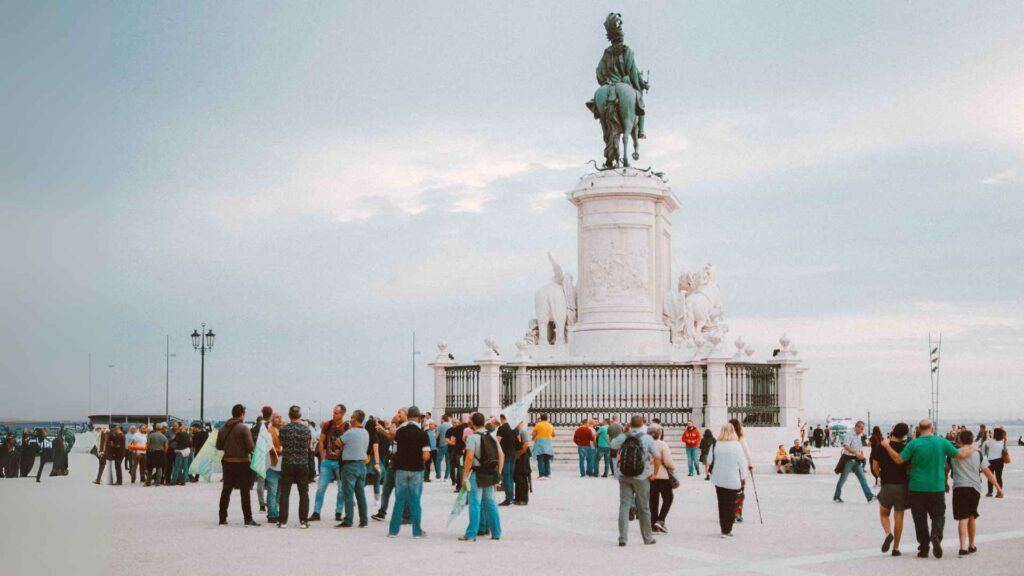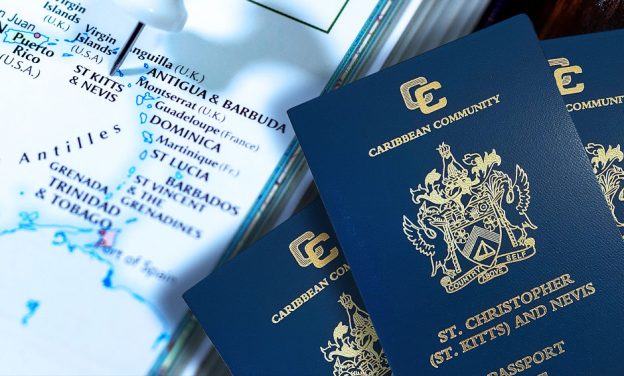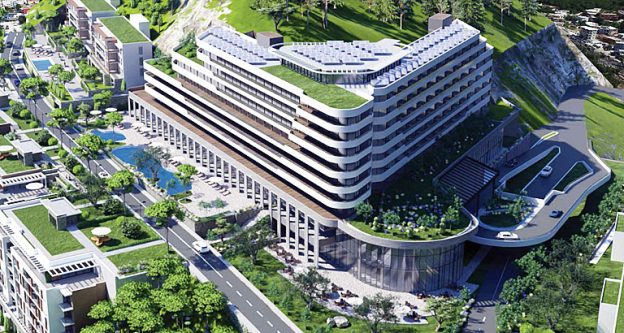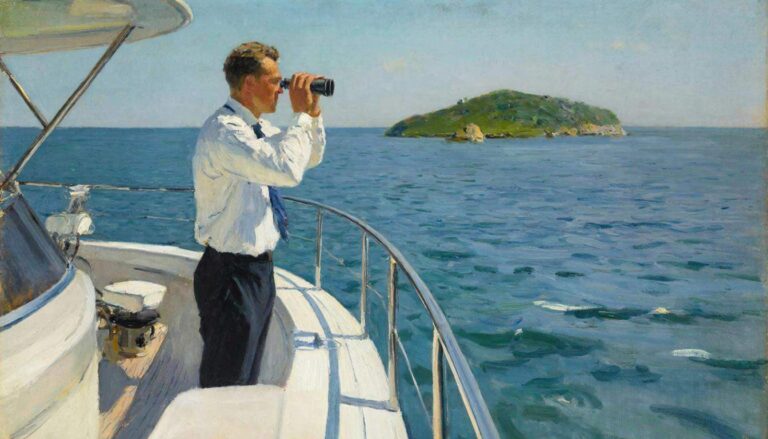A Tradition Rooted in Cultural Wealth
For centuries, elite families across Europe balanced their wealth using a three-part formula: one-third in financial markets, one-third in real estate, and one-third in alternative assets such as fine art, gemstones, and precious metals. This diversification strategy not only preserved family fortunes but also created cultural dynasties that still shape Europe’s identity today.
Fast forward to the 21st century, and the same philosophy is reappearing in modern wealth planning through innovative residency programs. Among them, Portugal’s Golden Visa, specifically the cultural investment pathway, has emerged as one of the most attractive options for investors who value both financial upside and cultural legacy.
Why Investors Are Turning Toward Portugal’s Cultural Golden Visa
Historically, Portugal’s Golden Visa attracted applicants through real estate. However, as policies evolved and certain real estate routes were phased out, cultural investment surged as a strategic alternative. This shift channeled significant foreign capital into Portugal’s underfunded arts and heritage sectors.
Not only does this redirection strengthen national cultural identity, but it also appeals to investors seeking socially responsible investments. Today’s wealthy families, especially younger generations, care about more than returns. They want measurable impact. Supporting the restoration of a centuries-old monastery or funding world-class exhibitions offers both emotional satisfaction and a long-term legacy.
Accordingly, this option represents far more than a visa. It’s an opportunity to build wealth while contributing to the preservation of a nation’s cultural DNA.
Key Structure of Portugal’s Cultural Golden Visa
Portugal’s Golden Visa cultural route is straightforward yet powerful. Investors can qualify by contributing a minimum of €250,000—or €200,000 in designated low-density regions—towards cultural production or heritage preservation.
Projects range from:
- Funding theaters, concert halls, or museums
- Supporting exhibitions and artistic productions
- Restoring historic landmarks and archives
- Partnering with renowned cultural institutions
Approval comes through Portugal’s Directorate-General for the Arts or the Institute of Museums and Conservation. Once completed, investors and their families gain a five-year renewable residency card that includes:
- Visa-free travel across the Schengen Area
- Inclusion of spouses, dependent children, and even parents over 65
- The right to apply for Portuguese citizenship after just five years, with only seven days of physical presence per year
Additionally, some projects grant film producer credits or recognition in official cultural records—tangible symbols of a family’s cultural contribution.
Strong Growth Backed by Real Numbers
The cultural route is no longer a niche experiment. Data from Portugal’s Ministry of Culture shows more than 100 Golden Visas have already been approved through cultural contributions, generating €25.6 million in revenue by early 2025.
The growth trajectory is remarkable:
- €4.5 million in cultural contributions in 2023
- €14 million in 2024
- An additional €2.1 million in Q1 2025 alone
To date, 38 cultural projects have received backing. Twenty-three focused on heritage restoration, while 15 supported artistic productions. The Serralves Foundation in Porto, one of Portugal’s most prestigious cultural institutions, has led 18 initiatives through this program.
These numbers highlight how investor interest has transformed the cultural visa into a cornerstone of Portugal’s long-term cultural development strategy.
The Global Push Toward Sustainable and Impact-Driven Wealth
The popularity of Portugal’s Golden Visa’s cultural option doesn’t exist in isolation—it reflects broader investment megatrends. Wealth reports consistently show investors, particularly Millennials and Gen Z, want their portfolios to align with sustainability.
- 38% of investors in North America and Asia-Pacific now prioritize measurable social or environmental impact alongside financial returns.
- 99% of Gen Z and 97% of Millennials express interest in sustainable investing, with significant portions of their portfolios already allocated to ESG-driven assets.
- Bloomberg forecasts ESG assets will exceed US $40 trillion by 2030, making up a quarter of all global assets under management.
In this context, a residency program that directs wealth into cultural and heritage projects fits seamlessly into the global move toward purposeful investing.
Who Is Applying to Portugal’s Golden Visa?
The demographic data speaks volumes. U.S. nationals remain the largest applicant group for Portugal’s cultural visa, followed by investors from China, India, and the United Kingdom. This diversity demonstrates how the program appeals across continents.
For American investors, in particular, the combination of EU access, family inclusion, and relatively low cost compared to other global residency options makes Portugal a compelling choice.
Case Studies: From Local Museums to International Recognition
Examples of transformation underline the value of cultural investment. One standout is the Museu do Caramulo, which received €14.6 million in Golden Visa donations from 73 investors. With an additional €6.8 million pledged, the museum has expanded its offerings to include a toy museum and significant preservation of vintage vehicles.
Stories like this illustrate how investors are directly tied to cultural renewal. It’s not just a visa. It’s a chance to attach your family’s name to projects that shape Portugal’s cultural future.
Why Portugal Stands Out Globally
Other countries have added cultural or philanthropic dimensions to their residency programs. Italy allows residency through a €1 million philanthropic donation, while Malta’s National Development and Social Fund channels contributions into cultural projects. Hungary’s relaunched Guest Investor Program includes support for research and arts.
Yet Portugal remains unique for three reasons:
- Lower Entry Point – With a minimum of €200,000 in certain areas, it is one of the most affordable routes in Europe.
- Flexible Timeline – The five-year track to citizenship, combined with the minimal stay requirement of just seven days annually, appeals to globally mobile investors.
- Strong Cultural Infrastructure – Portugal’s existing institutions, from Lisbon’s museums to Porto’s foundations, ensure investor capital is efficiently deployed.
This combination positions Portugal as the leader in cultural investment residency.
Apex Capital Partners’ Perspective
As one of the most established advisors in the global investment migration industry, Apex Capital Partners has seen firsthand the rising demand for Portugal’s cultural pathway. For many investors, the choice reflects a shift away from purely transactional programs toward options that deliver both tangible residency benefits and meaningful impact.
Apex emphasizes that the cultural visa should not be seen as a compromise compared to traditional routes. Instead, it offers an affordable, future-focused, and socially responsible investment path—one that positions investors at the intersection of wealth diversification and cultural preservation.
What This Means for Investors Today
Above all, Portugal Golden Visa remains one of the few European residency programs with a clear pathway to citizenship. Combined with its affordability, sustainability credentials, and family inclusivity, the cultural route is one of the most forward-thinking residency solutions available.
Investors who prioritize legacy and impact alongside financial diversification increasingly find that Portugal offers an unmatched blend of practical benefits and cultural significance.
Looking Ahead: Culture as Capital
After all, cultural investment is not new—it has always been a marker of status, taste, and influence. What’s new is the way Portugal has structured this tradition into a modern, investor-friendly pathway.
If the current trajectory continues, the cultural route may soon outpace other visa categories in both popularity and revenue. For investors who want residency, eventual EU citizenship, and the satisfaction of contributing to one of Europe’s most vibrant cultural landscapes, this may be the smartest play in today’s investment migration market.






